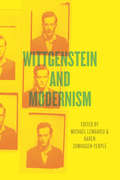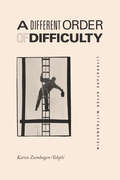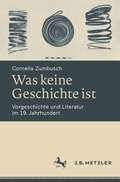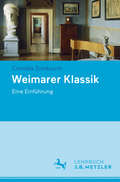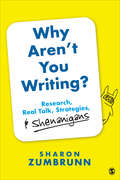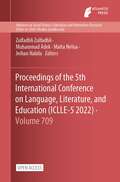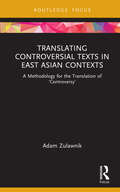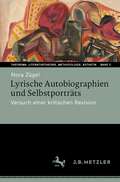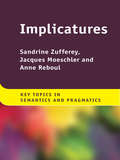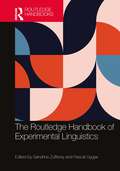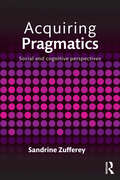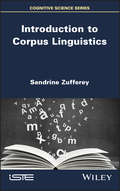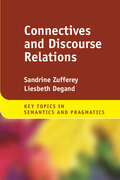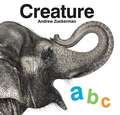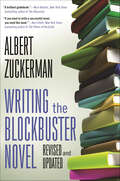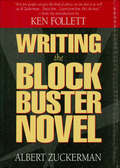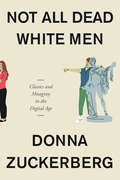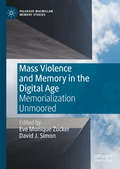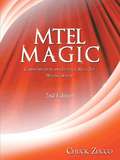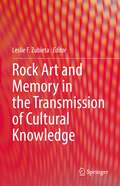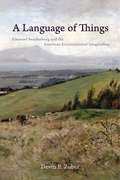- Table View
- List View
Wittgenstein and Modernism
by Karen Zumhagen-Yekplé Michael LemahieuLudwig Wittgenstein famously declared that philosophy “ought really to be written only as a form of poetry,” and he even described the Tractatus as “philosophical and, at the same time, literary.” But few books have really followed up on these claims, and fewer still have focused on their relation to the special literary and artistic period in which Wittgenstein worked. This book offers the first collection to address the rich, vexed, and often contradictory relationship between modernism—the twentieth century’s predominant cultural and artistic movement—and Wittgenstein, one of its preeminent and most enduring philosophers. In doing so it offers rich new understandings of both. Michael LeMahieu Karen Zumhagen-Yekplé bring together scholars in both twentieth-century philosophy and modern literary studies to put Wittgenstein into dialogue with some of modernism’s most iconic figures, including Samuel Beckett, Saul Bellow, Walter Benjamin, Henry James, James Joyce, Franz Kafka, Adolf Loos, Robert Musil, Wallace Stevens, and Virginia Woolf. The contributors touch on two important aspects of Wittgenstein’s work and modernism itself: form and medium. They discuss issues ranging from Wittgenstein and poetics to his use of numbered propositions in the Tractatus as a virtuoso performance of modernist form; from Wittgenstein’s persistence metaphoric use of religion, music, and photography to an exploration of how he and Henry James both negotiated the relationship between the aesthetic and the ethical. Covering many other fascinating intersections of the philosopher and the arts, this book offers an important bridge across the disciplinary divides that have kept us from a fuller picture of both Wittgenstein and the larger intellectual and cultural movement of which he was a part.
A Different Order of Difficulty: Literature after Wittgenstein
by Karen Zumhagen-YekpléIs the point of philosophy to transmit beliefs about the world, or can it sometimes have higher ambitions? In this bold study, Karen Zumhagen-Yekplé makes a critical contribution to the “resolute” program of Wittgenstein scholarship, revealing his Tractatus Logico-Philosophicus as a complex, mock-theoretical puzzle designed to engage readers in the therapeutic self-clarification Wittgenstein saw as the true work of philosophy. Seen in this light, Wittgenstein resembles his modernist contemporaries more than might first appear. Like the literary innovators of his time, Wittgenstein believed in the productive power of difficulty, in varieties of spiritual experience, in the importance of age-old questions about life’s meaning, and in the possibility of transfigurative shifts toward the right way of seeing the world. In a series of absorbing chapters, Zumhagen-Yekplé shows how Kafka, Woolf, Joyce, and Coetzee set their readers on a path toward a new way of being. Offering a new perspective on Wittgenstein as philosophical modernist, and on the lives and afterlives of his indirect teaching, A Different Order of Difficulty is a compelling addition to studies in both literature and philosophy.
A Different Order of Difficulty: Literature after Wittgenstein
by Karen Zumhagen-YekpléIs the point of philosophy to transmit beliefs about the world, or can it sometimes have higher ambitions? In this bold study, Karen Zumhagen-Yekplé makes a critical contribution to the “resolute” program of Wittgenstein scholarship, revealing his Tractatus Logico-Philosophicus as a complex, mock-theoretical puzzle designed to engage readers in the therapeutic self-clarification Wittgenstein saw as the true work of philosophy. Seen in this light, Wittgenstein resembles his modernist contemporaries more than might first appear. Like the literary innovators of his time, Wittgenstein believed in the productive power of difficulty, in varieties of spiritual experience, in the importance of age-old questions about life’s meaning, and in the possibility of transfigurative shifts toward the right way of seeing the world. In a series of absorbing chapters, Zumhagen-Yekplé shows how Kafka, Woolf, Joyce, and Coetzee set their readers on a path toward a new way of being. Offering a new perspective on Wittgenstein as philosophical modernist, and on the lives and afterlives of his indirect teaching, A Different Order of Difficulty is a compelling addition to studies in both literature and philosophy.
A Different Order of Difficulty: Literature after Wittgenstein
by Karen Zumhagen-YekpléIs the point of philosophy to transmit beliefs about the world, or can it sometimes have higher ambitions? In this bold study, Karen Zumhagen-Yekplé makes a critical contribution to the “resolute” program of Wittgenstein scholarship, revealing his Tractatus Logico-Philosophicus as a complex, mock-theoretical puzzle designed to engage readers in the therapeutic self-clarification Wittgenstein saw as the true work of philosophy. Seen in this light, Wittgenstein resembles his modernist contemporaries more than might first appear. Like the literary innovators of his time, Wittgenstein believed in the productive power of difficulty, in varieties of spiritual experience, in the importance of age-old questions about life’s meaning, and in the possibility of transfigurative shifts toward the right way of seeing the world. In a series of absorbing chapters, Zumhagen-Yekplé shows how Kafka, Woolf, Joyce, and Coetzee set their readers on a path toward a new way of being. Offering a new perspective on Wittgenstein as philosophical modernist, and on the lives and afterlives of his indirect teaching, A Different Order of Difficulty is a compelling addition to studies in both literature and philosophy.
Was keine Geschichte ist: Vorgeschichte und Literatur im 19. Jahrhundert
by Cornelia ZumbuschUnter Vorgeschichte versteht man gewöhnlich die Geschichte der Menschen vor dem Einsatz schriftlicher Zeugnisse. In Bezug auf literarische Erzählungen hingegen meint Vorgeschichte das, was zwar vor dem Anfang der Geschichte geschehen ist, aber erst später erzählt wird. Ein zentraler Text für die Erforschung der Vorgeschichte sowohl in der prähistorischen Archäologie als auch in der Narratologie ist die homerische Odyssee. Am Leitfaden der Homer-Rezeption geht die Studie deshalb den Formen der Vorgeschichte im 19. Jahrhundert nach. Wie wird Vorgeschichte zum Gegenstand der Wissenschaften? Warum erzählen Romane von Goethe, Stifter und Fontane nicht nur Geschichten, sondern auch in diese eingelagerte Vorgeschichten? Und in welchem Zusammenhang steht diese Erzählform mit dem auffälligen Interesse der Literatur an Altertümern und prähistorischen Relikten?
Weimarer Klassik: Eine Einführung
by Cornelia ZumbuschDie Weimarer Klassik ist eine zentrale, wenn auch umstrittene Epoche der Literaturgeschichte. Diese Einführung skizziert die Diskussion über eine um Goethe und Schiller gruppierte ›Weimarer Klassik‹ und beschreibt ihre Voraussetzungen, Kontexte und Programmatik. Drei umfangreiche Kapitel stellen exemplarische literarische Werke Schillers und Goethes vor, geordnet nach Lyrik, Dramatik und Erzählformen.
Why Aren’t You Writing?: Research, Real Talk, Strategies, & Shenanigans
by Sharon K. ZumbrunnWrite more with less pain! Why Aren’t You Writing?: Research, Real Talk, Strategies, & Shenanigans describes research on how bright and otherwise fairly normal people lose their minds when it comes to writing, and then shows the reader how to stop being one of those people. Author Sharon Zumbrunn designed this brief text for beginning and struggling academic writers so they can understand the psychological hang-ups that can get in the way of productivity. This book intertwines social and behavioral science research and humor to offer tips and exercises to help writers overcome their hurdles. Each chapter includes a description of findings from psychological and related research on writing hurdles and personal experiences of the writing process. Within the chapters, the author provides practical strategies and resources to help writers move beyond the challenges holding them back. Why Aren′t You Writing? acknowledges how emotionally and mentally challenging it can be to be a "writer." This book helps readers to balance the hard work required for change with a bit of levity often necessary for withstanding sustained difficult thinking and meaningful change. Together, the components of this text present a systematic approach for beginning and struggling academics to become aware of what might be happening in their heads when they (don’t) write, and harness that knowledge to build a healthier and more resilient relationship with writing.
Why Aren’t You Writing?: Research, Real Talk, Strategies, & Shenanigans
by Sharon K. ZumbrunnWrite more with less pain! Why Aren’t You Writing?: Research, Real Talk, Strategies, & Shenanigans describes research on how bright and otherwise fairly normal people lose their minds when it comes to writing, and then shows the reader how to stop being one of those people. Author Sharon Zumbrunn designed this brief text for beginning and struggling academic writers so they can understand the psychological hang-ups that can get in the way of productivity. This book intertwines social and behavioral science research and humor to offer tips and exercises to help writers overcome their hurdles. Each chapter includes a description of findings from psychological and related research on writing hurdles and personal experiences of the writing process. Within the chapters, the author provides practical strategies and resources to help writers move beyond the challenges holding them back. Why Aren′t You Writing? acknowledges how emotionally and mentally challenging it can be to be a "writer." This book helps readers to balance the hard work required for change with a bit of levity often necessary for withstanding sustained difficult thinking and meaningful change. Together, the components of this text present a systematic approach for beginning and struggling academics to become aware of what might be happening in their heads when they (don’t) write, and harness that knowledge to build a healthier and more resilient relationship with writing.
Proceedings of the 5th International Conference on Language, Literature, and Education (Advances in Social Science, Education and Humanities Research #709)
by Zulfadhli Zulfadhli Muhammad Adek Malta Nelisa Jeihan NabilaThis is an open access book. The 5th ICLLE will be held in Padang, Indonesia in July 27th, 2022. The conference aims to provide a forum for researchers, practitioners, and professinals from the industry, academia and government to discourse on research and development, professional practice in linguistics, literature and education.
Translating Controversial Texts in East Asian Contexts: A Methodology for the Translation of ‘Controversy’ (Routledge Advances in Translation and Interpreting Studies)
by Adam ZulawnikZulawnik focuses on the broad concept of ‘controversy’ and issues pertaining to the translation of politically and historically controversial texts in East Asia. The research methodology is exemplified through a case study in the form of the author’s translation of the best-selling Japanese graphic novel (manga) Manga Kenkanryū (Hate Hallyu: The Comic) by Sharin Yamano (2005), a work that has been problematised as an attack on South Korean culture and the Korean Wave. Issues analysed and discussed in the research include translation risk, ethics, a detailed methodology for the translation of so-called controversial texts exemplified through numerous thematically divided examples from the translation of the chosen Japanese text, as well as examples from a Korean language equivalent (Manhwa Hyeomillyu – Hate Japanese Wave), and definition and contextualisation of the concept of ‘controversy’. There has been limited research in the field of translation studies, which seeks to exemplify potential pragmatic approaches for the translation of politically-charged texts, particularly in multi-modal texts such as the graphic novel. It is hoped that Zulawnik’s research will serve both as a valuable source when examining South Korea–Japan relations and a theoretical and methodological base for further research and the development of an online augmented translation space with devices specifically suited for the translation of multi-modal texts such as – but not limited to – graphic novels and visual encyclopaedias.
Lyrische Autobiographien und Selbstporträts: Versuch einer kritischen Revision (Theorema. Literaturtheorie, Methodologie, Ästhetik #2)
by Nora ZügelDas Buch widmet sich der Erforschung von ‚lyrischen Selbstentwürfen‘, also lyrischen Texten, die Textmerkmale aufweisen, auf Grund derer LeserInnen mit guten Gründen annehmen können, dass diese eine literarische Selbstthematisierung ihres Verfassers oder ihrer Verfasserin darstellen. Verschiedene literaturwissenschaftliche Grundannahmen – insbesondere der konventionalisierte Anspruch, ‚lyrisches Ich‘ und AutorIn streng zu unterscheiden – haben eine umfängliche Auseinandersetzung mit ihnen bis in die Gegenwart erschwert. Ausgehend von Widersprüchen, Inkonsistenzen oder Leerstellen bisheriger Interpretationspraktiken und theoretischer Konzepte zielt die Studie darauf, eine Theorie des lyrischen Selbstentwurfs auszuarbeiten und hierdurch lyrische Werke, die eine Referenz auf ihren Autor oder ihre Autorin anbieten, stärker in das Bewusstsein der Literaturwissenschaft zu rücken und als eigene Textsorte klarer zu konturieren. Aus diesen Zielsetzungen folgt der zweiteilige Aufbau der Untersuchung: Teil I unterwirft etablierte Praktiken, Theorien und Begriffe einer kritischen Revision, Teil II schließt auf Basis der erfolgten Bestandsaufnahme ausgemachte konzeptuelle Lücken, entwickelt ergänzende Analysebegriffe, zeigt ihre Verwendungsmöglichkeiten an konkreten Beispielen auf und bindet die zunächst abstrakt bleibenden Ausführungen an konkrete Texte zurück, wodurch zugleich die Vielfalt der existierenden Erscheinungsformen der betrachteten Gattung veranschaulicht wird. Damit ist die Arbeit vor allem als literaturtheoretische Grundlagenforschung einzuordnen, liefert darüber hinaus aber auch Interpretationen exemplarischer Textbeispiele (u.a. von Oswald von Wolkenstein, Goethe, Droste-Hülshoff, Brecht, Rilke, Jandl, Mayröcker, Jan Wagner). Die kritischen, forschungsgeschichtlich und praxeologisch perspektivierten Fragen fokussieren sich unter anderem auf die Begriffe des „lyrischen Ichs“, des „Sprechers“, des „abstrakten Autors“, auf bisherige Versuche einer Positionsbestimmung der Lyrik zwischen Fiktionalität und Faktualität und auf die Marginalisierung der Lyrik innerhalb der Autobiographieforschung.
Implicatures (Key Topics in Semantics and Pragmatics)
by Sandrine Zufferey Jacques Moeschler Anne ReboulAn accessible and thorough introduction to implicatures, a key topic in all frameworks of pragmatics. Starting with a definition of the various types of implicatures in Gricean, neo-Gricean and post-Gricean pragmatics, the book covers many important questions for current pragmatic theories, namely: the distinction between explicit and implicit forms of pragmatic enrichment, the criteria for drawing a line between semantic and pragmatic meaning, the relations between the structure of language (syntax) and its use (pragmatics), the social and cognitive factors underlying the use of implicatures by native speakers, and the factors influencing their acquisition for children and second language learners. Written in non-technical language, Implicatures will appeal to students and teachers in linguistics, applied linguistics, psychology and sociology, who are interested in how language is used for communication, and how children and learners develop pragmatic skills.
The Routledge Handbook of Experimental Linguistics (Routledge Handbooks in Linguistics)
by Sandrine Zufferey Pascal GygaxThe Routledge Handbook of Experimental Linguistics provides an up-to-date and accessible overview of various ways in which experiments are used across all domains of linguistics and surveys the range of state-of-the-art methods that can be applied to analyse the language of populations with a wide range of linguistic profiles. Each chapter provides a step-by-step introduction to theoretical and methodological challenges and critically presents a wide range of studies in various domains of experimental linguistics. This handbook: • Provides a unified perspective on the data, methods and findings stemming from all experimental research in linguistics • Covers many different subfields of linguistics, including argumentation theory, discourse studies and typology • Provides an introduction to classical as well as new methods to conduct experiments such as eye tracking and brain imaging • Features a range of internationally renowned academics • Shows how experimental research can be used to study populations with various linguistic profiles, including young children, people with linguistic impairments, older adults, language learners and bilingual speakers Providing readers with a wealth of theoretical and practical information in order to guide them in designing methodologically sound linguistic experiments, this handbook is essential reading for scholars and students researching in all areas of linguistics.
Acquiring Pragmatics: Social and cognitive perspectives
by Sandrine ZuffereyAcquiring Pragmatics offers a comprehensive synthesis of state-of-the-art research on the acquisition of pragmatics. It introduces the current topics of research in theoretical pragmatics and explores the issues they raise for language acquisition research and the new experimental designs which have been developed to address them. While each chapter covers each topic in depth, it also places a strong emphasis on the underlying methodological aspects of each issue, which will help the reader to develop their own experimental designs. Key topics covered include: The interfaces between pragmatics and language acquisition The social aspects of pragmatic competence The cognitive aspects of pragmatic competence The acquisition of pragmatics in autistic spectrum disorders and second language acquisition Acquiring Pragmatics is key reading for advanced undergraduate and graduate students studying pragmatics and language acquisition.
Introduction to Corpus Linguistics
by Sandrine ZuffereyOver the past decades, the use of quantitative methods has become almost generalized in all domains of linguistics. However, using these methods requires a thorough understanding of the principles underlying them. Introduction to quantitative methods in linguistics aims at providing students with an up-to-date and accessible guide to both corpus linguistics and experimental linguistics. The objectives are to help students developing critical thinking about the way these methods are used in the literature and helping them to devise their own research projects using quantitative data analysis.
Connectives and Discourse Relations (Key Topics in Semantics and Pragmatics)
by null Sandrine Zufferey null Liesbeth DegandIllustrated with examples from a rich range of languages and genres, this book provides a state-of-the-art introduction to the meanings and functions of connectives, and the discourse relations they communicate. It begins with theoretical chapters that illustrate the many interfaces present in the study of connectives and discourse relations, using diachronic data to illustrate how connectives incorporate such a wide range of functions in synchronic language use. The second half of the book presents the rapidly growing body of studies that have used empirical data to assess theories of connectives and discourse relations, spanning fields as diverse as discourse processing, first and second language acquisition, and cross-linguistic studies. End-of-chapter discussion questions and lists of further readings are included, along with a comprehensive glossary of key terms. This title is part of the Flip it Open Programme and may also be available open access. Check our website Cambridge Core for details.
Hegel on Philosophy in History
by Rachel Zuckert James KreinesIn this volume honouring Robert Pippin, prominent philosophers such as John McDowell, Slavoj Žižek, Jonathan Lear, and Axel Honneth explore Hegel's proposals concerning the historical character of philosophy. Hegelian doctrines discussed include the purported end of art, Hegel's view of human history, including the history of philosophy as the history of freedom (or autonomy), and the nature of self-consciousness as realized in narrative or in action. Hegel scholars Rolf-Peter Horstmann, Sally Sedgwick, Terry Pinkard, and Paul Redding attempt to vindicate some of Hegel's claims concerning historical philosophical progress, while others such as Robert Stern, Christoph Menke, and Jay Bernstein suggest that Hegel either did not conceive of philosophy as progressing unidirectionally or did not make good on his claims to progress: perhaps we should still be Aristotelians in ethics, or perhaps we are still torn between sensibility and reason, or between individuality and social norms. Perhaps capitalism has exacerbated such problems.
Creature ABC
by Andrew ZuckermanAn elegant addition to any library, this deluxe alphabet book features 120 pages of Andrew Zuckerman's breathtaking wildlife photography. From alligator to zebra, each featured animal boasts two striking studio portraits against a clean white background, offering a unique up-close view of the animal kingdom. Readers can flip to a helpful glossary in the back for extra information. From the sleek beauty of a smiling hippo to the powerful majesty of a roaring lion, this gorgeous new bookis both a stunning work of art and a ferociously fun way for young animal-lovers to learn their ABCs.
Writing the Blockbuster Novel
by Albert ZuckermanAlbert Zuckerman, legendary literary agent, has worked with many bestselling authors, including Ken Follett, Olivia Goldsmith, Antoinette Van Heugten, Michael Lewis, and F. Paul Wilson. Zuckerman is a master at teaching writers the skills necessary to crack the bestseller list. For this revised edition of Writing the Blockbuster Novel, Zuckerman has added an analysis of Nora Roberts's The Witness, which he uses along with classic books like Gone With the Wind and The Godfather, to illustrate his points. Zuckerman's commentary on Ken Follett's working outlines for The Man From St. Petersburg provide a blueprint for building links between plot and character. A new introduction discusses social media and self-publishing.Writing the Blockbuster Novel is an essential tool for any aspiring author. As Dan Brown said in an interview: "Not long ago, I had an amusing experience meeting the author of a book I received as a gift nearly two decades ago a book that in many ways changed my life. I was halfway through writing my first novel when I was given a copy of Writing the Blockbuster Novel. [Zuckerman's] book helped me complete my manuscript and get it published. [When] I met Mr. Zuckerman for the first time. I gratefully told him that he had helped me. He jokingly replied that he planned to tell everyone that he had helped me write The Da Vinci Code."At the Publisher's request, this title is being sold without Digital Rights Management Software (DRM) applied.
Writing the Blockbuster Novel
by Al ZuckermanEvery novelist dreams of it--writing the book that rockets to the top of the best-seller lists. Now, they can see how it's done, up close, in a book by an agent who has sold manuscripts that turned into hits.<P><P> Here Albert Zuckerman covers the essential elements of the blockbuster novel and shows writers how to put them to work in their books. Zuckerman covers the subject thoroughly, from creating outlines and building larger than life characters to injecting suspense and more. His instruction is decisive, direct and clear and is supported with examples from Gone With the Wind, The Godfather and other blockbusters.
Not All Dead White Men: Classics and Misogyny in the Digital Age
by Donna ZuckerbergSome of the most controversial and consequential debates about the legacy of the ancients are raging not in universities but online, where alt-right men’s groups deploy ancient sources to justify misogyny and a return of antifeminist masculinity. Donna Zuckerberg dives deep to take a look at this unexpected reanimation of the Classical tradition.
Mass Violence and Memory in the Digital Age: Memorialization Unmoored (Palgrave Macmillan Memory Studies)
by Eve Monique Zucker David J. SimonThis volume explores the shifting tides of how political violence is memorialized in today's decentralized, digital era. The book enhances our understanding of how the digital turn is changing the ways that we remember, interpret, and memorialize the past. It also raises practical and ethical questions of how we should utilize these tools and study their impacts. Cases covered include memorialization efforts related to the genocides in Rwanda, Cambodia, Europe (the Holocaust), and Armenia; to non-genocidal violence in Haiti, and the Portuguese Colonial War on the African Continent; and of the September 11 attacks on the United States.
MTEL Magic: Writing Subtest
by Chuck ZuccoThe name of this book is a misnomer. There really is no magical solution to taking this or any other test. What makes this book different is that it presents a simple formula for passing-skills + strategies + practice = success.
Rock Art and Memory in the Transmission of Cultural Knowledge
by Leslie F. ZubietaThis book shares timely and thought-provoking methodological and theoretical approaches from perspectives concerning landscape, gender, cognition, neural networks, material culture and ontology in order to comprehend rock art’s role in memorisation processes, collective memory, and the intergenerational circulation of knowledge. The case studies offered here stem from human experiences from around the globe—Africa, Australia, Europe, North and South America—, which reflects the authors’ diverse interpretative stances. While some of the approaches deal with mnemonics, new digital technologies and statistical analysis, others examine performances, sensory engagement, language, and political disputes, giving the reader a comprehensive view of the myriad connections between memory studies and rock art. Indigenous interlocutors participate as collaborators and authors, creating space for Indigenous narratives of memory. These narratives merge with Western versions of past and recent memories in order to construct jointly novel inter-epistemic understandings of images made on rock. Each chapter demonstrates the commitment of rock art studies to strengthen and enrich the field by exploring how communities and cultures across time have perceived and entangled rock images with a broad range of material culture, nonhumans, people, emotions, performances, sounds and narratives. Such relations are pivotal to understanding the universe behind the intersections of memory and rock art and to generating future interdisciplinary collaborative studies.
A Language of Things: Emanuel Swedenborg and the American Environmental Imagination (Studies in Religion and Culture)
by Devin P. ZuberLong overlooked, the natural philosophy and theosophy of the Scandinavian scientist-turned-mystic Emanuel Swedenborg (1688–1772) made a surprising impact in America. Thomas Jefferson, while president, was so impressed with the message of a Baltimore Swedenborgian minister that he invited him to address both houses of Congress. But Swedenborgian thought also made its contribution to nineteenth-century American literature, particularly within the aesthetics of American Transcendentalism. Although various scholars have addressed how American Romanticism was affected by different currents of Continental thought and religious ideology, surprisingly no book has yet described the specific ways that American Romantics made persistent recourse to Swedenborg for their respective projects to re-enchant nature. In A Language of Things, Devin Zuber offers a critical attempt to restore the fundamental role that religious experience could play in shaping nineteenth-century American approaches to natural space. By tracing the ways that Ralph Waldo Emerson, John Muir, and Sarah Orne Jewett, among others, variously responded to Swedenborg, Zuber illuminates the complex dynamic that came to unfold between the religious, the literary, and the ecological. A Language of Things situates this dynamic within some of the recent "new materialisms" of environmental thought, showing how these earlier authors anticipate present concerns with the other-than-human in the Anthropocene.
